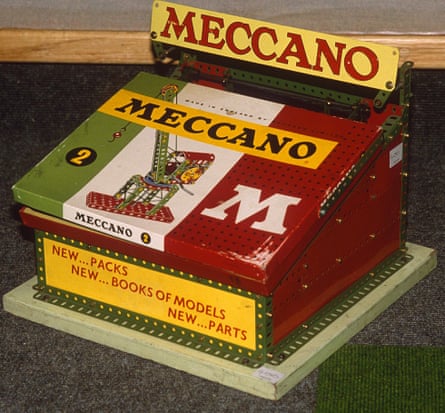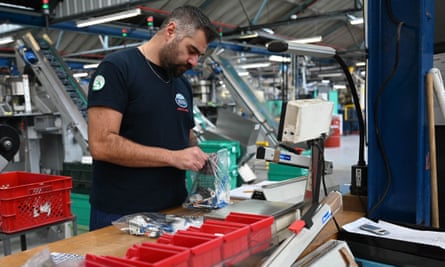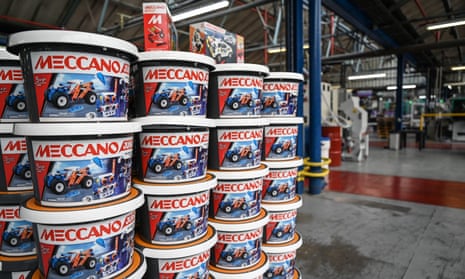It is the children’s toy, invented in Britain, that inspired a passion for engineering, science and technology in generations of youngsters – and their parents.
Meccano building sets filled with reusable perforated metal – and later plastic – strips, plates, nuts, bolts, winches, wires, wheels and even motors have been used to construct models and mechanical devices for more than 120 years.
Now the last dedicated Meccano factory in the world is being closed and dismantled. The Canadian company that owns Meccano has said the plant at Calais will close at the beginning of 2024, putting 51 people out of work. It blamed the soaring cost of raw materials and “a lack of competitiveness” for the closure.

Spin Master, which bought the brand in 2013, said Meccano toys would continue to be produced by its “network of partners in Europe, Asia and Latin America”.
“We have no other choice than to envisage the end of industrial activity at the Calais factory,” Spin Master said in a statement, adding that the factory had “never managed to break even” in spite of receiving €7m (£6.1m) in investment since 2014.
Jean-François Sandrass, who has worked at the Calais factory for almost 40 years, said the staff had not expected the shutdown. “We were stunned … some were even crying. We were expecting reduced working hours, but not the closure of the factory,” he said.
He said the company did not appear to be in financial trouble. “They’ve told us for the last two or three years that we were gradually getting back on track, and in 2021 we had a positive year. And suddenly the board says: ‘It’s been 10 years that money has been injected, and it hasn’t worked’. We are part of a major group that has made enormous profits.”
Natacha Bouchart, the mayor of Calais, said Spin Master had never indicated it had any problems and lamented a lack of transparency. “We don’t know what the group’s real intentions are; does it want to dump its licence in France and operate in Mexico? Or boost another of its licences elsewhere? If so, we can’t let that happen,” Bouchart told Agence France-Presse. “This company did €55m worth of business in France in 2021 and $2bn worldwide. It has the means to finance higher energy costs … we wonder what are the real motives for this.”
Meccano was invented in Britain in 1898 by Frank Hornby, who marketed it to boys as Mechanics Made Easy in 1901 and Meccano in 1907. The word Meccano was believed to come from an amalgam of “make and know”. The company operated in Liverpool.

Meccano kit owners could follow instructions to build a specific device, or use their imaginations to make something else. The engineering toys became widely popular – along with Hornby model trains and Dinky cars made later by the same company – and by the 1930s Meccano had become the largest toy manufacturer in the UK. By the 1920s Meccano Magazine had a monthly circulation of 70,000 and Meccano groups had sprung up around the world. It has been in decline since the 1950s.
The first French Meccano factory opened in Paris in 1921.
Faced with video games, Meccano attempted to shake off its image as the toyshop symbol of a lost industrial age by including radio controls, robotics and other 21st-century updates – although its increasingly sophisticated kits, available in 80 countries, still contain the same strips, screws and hole spacing in imperial measures (inches and not centimetres) as the 1901 originals.
In 2009, the Top Gear presenter James May and a group of engineering students used 100,000 pieces of Meccano to build a 12 metre (40ft) bridge spanning the canal at Pier Head in Liverpool. In 2015, engineering students from Queen’s University in Belfast created a 30 metre Meccano footbridge across Clarendon Dock.
